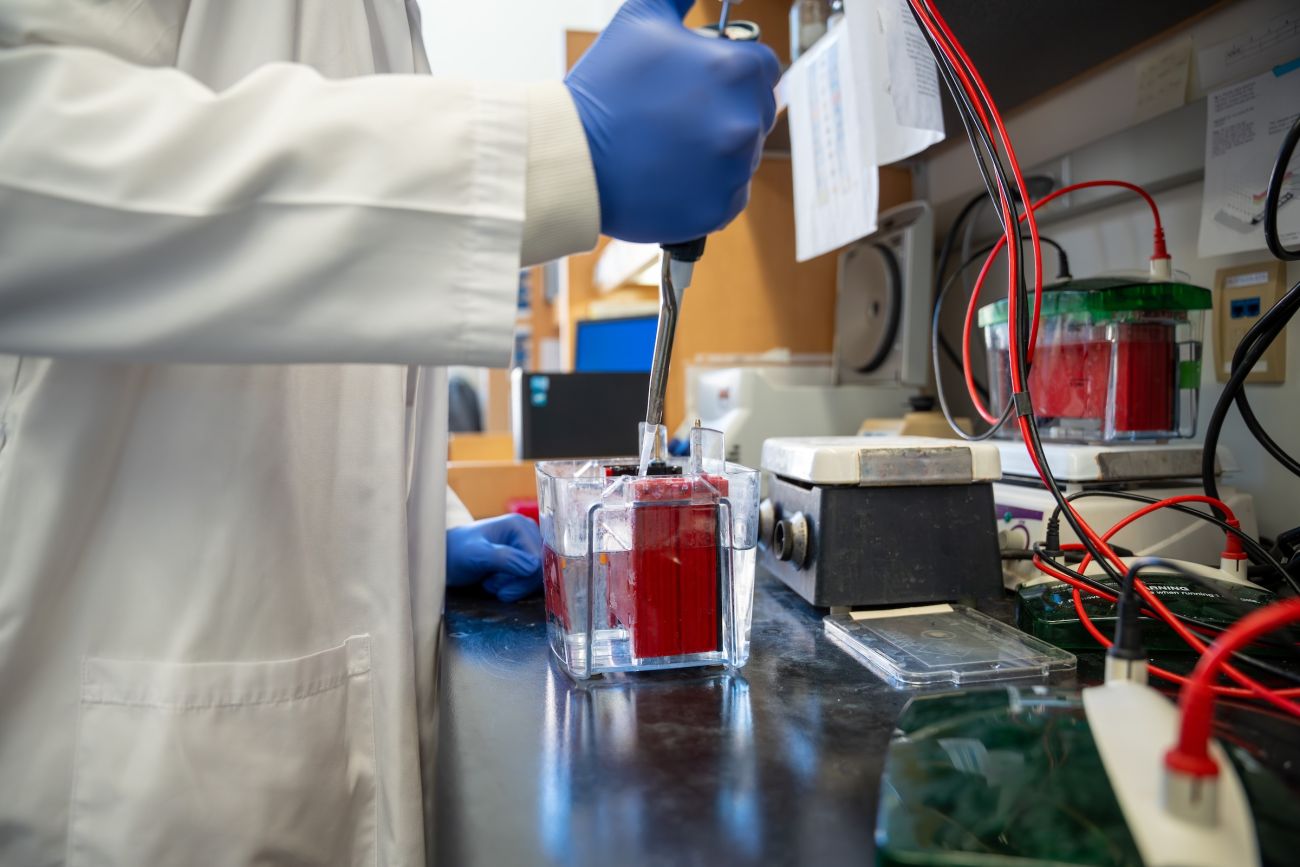Take a look at a few of the projects funded through Roswell Park’s Scientific Advisory Committee (SAC)
The difference between a great idea and the next breakthrough is funding. Roswell Park is home to some of the brightest minds in cancer research, and it takes donor dollars to take their ideas from the bench to the bedside. That’s where Roswell Park’s Scientific Advisory Committee (SAC) comes in. Donations to the SAC initiative provide seed funding for new projects and can be made to fund research for a specific type of cancer. Researchers submit their applications to compete for donated funds and an internal, objective committee decides which projects receive funding.
Here are just a few of the projects funded within the last year.
Targeting specific protein in breast cancer metastasis
PI: Xuhang Liu, PhD
Metastasis is the leading cause of death among breast cancer patients with limited treatment options. This project aims to understand the role of a critical modification on a key protein that drives breast cancer metastasis and develop a new strategy to halt metastatic progression. This long-term goal is to identify new therapeutic targets and develop novel therapeutic approaches to treat metastatic breast cancer.
E-cigarette vaping and cigarette smoking cessation
PI: Karin Kasza, PhD
Cigarette smoking causes over 480,000 deaths in the United States each year and is responsible for one-third of cancer deaths. This project will study the effects of nicotine concentration and flavors in E-cigarettes on adults transitioning away from cigarette smoking.
Modeling of drug resistance in FLT3-mutated acute myeloid leukemia
PI: Pamela Sung, MD, PhD
FLT3 is a protein that is frequently mutated in acute myeloid leukemia (AML) and causes an aggressive form of blood cancer. Current treatments inhibit FLT3, but relapses still occur. This study will help us understand how mutations in the RAS gene cause resistance to FLT3 inhibitor therapy. These studies will inform potential strategies to overcome RAS-mediated resistance.
Uncovering therapeutic avenues to target PDAC
PI: Aftab Alam, PhD
Pancreatic ductal adenocarcinoma (PDAC) is a devastating disease with a five-year overall survival of only 13%. Researchers aim to understand the role of the exocytosis pathway in driving PDAC progression to find new ways to target immunosuppressive type 2 immune to perturb PDAC progression.
Low-dose psilocybin therapy for chronic cancer pain
PI: William Alexander, MD, PhD
Cancer-related pain affects the majority of cancer patients and significantly impacts quality of life. This study will evaluate the psychedelic psilocybin as a potential novel treatment for cancer-related pain. This study will gather essential data for the design of future trials as well as insights into potential mechanisms of low-dose psilocybin.
In addition to these studies, here are other grants awarded to Roswell Park researchers thanks to your support last fall.
RENAL CELL CARCINOMA: Are Indigenous American genetic ancestry and metabolic syndrome driving clear cell renal cell carcinoma somatic mutations in Hispanic patients, studied by Dr. Batai.
NON-MUSCLE-INVASIVE BLADDER CANCER: How photodynamic therapy enhances anti-tumor immunity and reduces clonal mutation to treat non-muscle-invasive bladder cancer, studied by Dr. Brackett.
METASTATIC TRIPLE NEGATIVE BREAST CANCER: Repurposing Tamoxifen with Pegylated Liposomal Doxorubicin to treat Metastatic Triple Negative Breast Cancer, studied by Dr. Das.
OVARIAN CANCER: Overcoming tumor antigen heterogeneity in ovarian cancer using multi-armed bispecific T-cell engager-secreting T cells, studied by Dr. McGray.
HIGH-GRADE SEROUS CARCINOMA: Overcoming tumor microenvironment-mediated immunosuppression in High-Grade Serous Carcinoma, studied by Dr. McGray and Dr. McLean.
AGE AND CANCER: Elucidating mechanisms of CD28 downregulation with age and cancer, studied by Dr. Olejniczak.
LUNG HEALTH: Using home-base respiratory muscle training to improve lung health in smokers, studied by Dr. Ray.
PROSTATE CANCER A: genetic screen to investigate the drivers of prostate cancer lesions in the bone, studied by Dr. Hai Wang.
